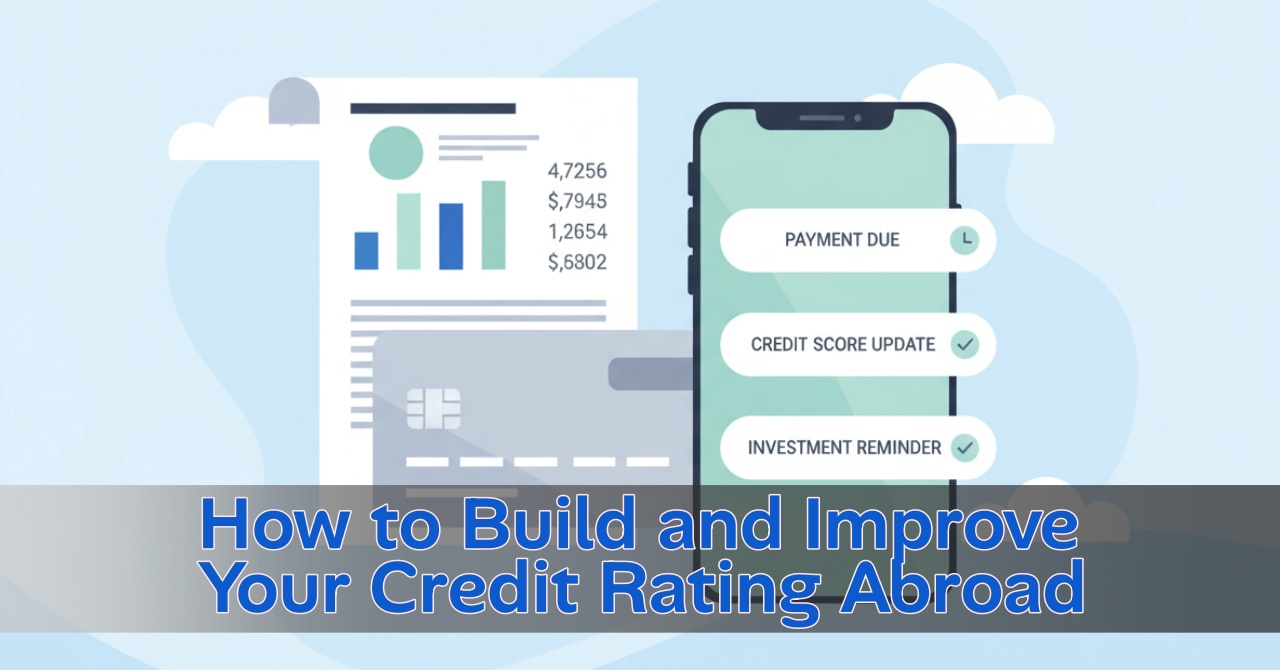For many Filipinos, a good credit score is more than just a number. It serves as the foundation for financial growth, affecting how easily one can access loans, buy a home, or start a business.
Yet, building and maintaining credit in the Philippines can be difficult, especially for those without regular income records or access to traditional banks. This is where being an Overseas Filipino Worker (OFW) becomes an advantage.
Working abroad provides OFWs with the chance to establish and strengthen their credit standing through stable employment, consistent remittances, and exposure to international financial systems. By opening local bank accounts, paying bills on time, and using credit wisely, OFWs can create a trusted financial track record that lenders recognize both overseas and in the Philippines.

Why Credit Rating Matters for OFWs
A good credit score is more than just a number—it’s your financial passport. For Overseas Filipino Workers (OFWs), it can shape your quality of life abroad and even affect your opportunities when you return home.
Here’s why your credit rating is important:
- Access to loans and credit cards: Higher scores mean easier approval and lower interest rates.
- Housing and utilities: Landlords and telecom companies often check credit reports before approving applications.
- Employment opportunities: In countries like the U.S. and Canada, employers may review credit history during background checks.
- Future in the Philippines: A strong record abroad can help when applying for car loans or housing loans back home.
Having a solid credit rating gives you freedom—freedom to choose, to plan, and to grow.
Practical Steps for OFWs to Improve Credit Rating
Building good credit doesn’t happen overnight. It’s a process that requires consistency and discipline.
- Establish a Local Financial Footprint
Open a bank account in your host country as soon as possible. Regular deposits, remittances, or salary transfers show financial stability.
If you can, keep both a local account abroad and a Philippine account active to build credibility in both countries.
- Start with a Secured Credit Card
A secured card works like a starter tool—you deposit a set amount that becomes your credit limit.
Use it for everyday purchases such as groceries or phone bills, then pay the balance in full every month.
Tip: Payment history makes up the largest part of your credit score, so always pay on time.
- Pay Bills Promptly
Bills such as rent, utilities, or phone plans are often reported to credit bureaus. One missed payment can hurt your score, while consistent payments boost it.
Set reminders or enable auto-pay to stay on track.
- Keep Debt Levels Low
Your credit utilization ratio—how much of your limit you use—should stay below 30%.
Avoid maxing out cards or taking loans you don’t need. Low balances signal responsible spending.
- Monitor Your Credit Report
You’re entitled to a free credit report every year in many countries:
- United States: Experian, Equifax, TransUnion
- Canada: Equifax, TransUnion
- UK: Experian
- Australia: Equifax
Check your report regularly for errors or suspicious activity and dispute any inaccuracies right away.
- Diversify Credit Responsibly
Once you’ve built trust with lenders, consider adding other credit types such as a small car or personal loan.
Showing that you can manage different financial responsibilities improves your profile—but only borrow what you can comfortably repay.
- Maintain Long-Term Accounts
The age of your credit history also counts. Keep older accounts open and active even if you rarely use them. Longevity shows stability and trustworthiness.
Credit Score Ranges Abroad
| Country | Range | Good Score Starts At | Main Bureau(s) |
| USA | 300–850 | 700+ | FICO, Experian |
| Canada | 300–900 | 713+ | Equifax, TransUnion |
| Australia | 0–1000 | 700+ | Equifax |
| UK | 0–999 | 881+ | Experian |
A “good” or “excellent” rating opens doors to better interest rates, faster approvals, and more financial flexibility.
Extra Tips for OFWs
- Use remittance-linked credit tools: Some banks partner with remittance centers to help OFWs build credit faster.
- Leverage employer references: Lenders may consider proof of steady employment when assessing your risk profile.
- Stay consistent: It takes 6–12 months of good habits to see improvement, but the effort pays off.
Frequently Asked Questions (FAQs)
1. Why is a good credit score important for Filipinos?
A good credit score helps you qualify for loans, credit cards, or housing with lower interest rates. It shows banks and lenders that you are responsible with money.
2. Can OFWs build credit while working abroad?
Yes. OFWs can build credit by opening local bank accounts, getting secured credit cards, and paying bills and loans on time in their host country. These activities create a financial record that builds trust with lenders.
3. Will my credit history abroad help in the Philippines?
While credit systems differ by country, a good record abroad can strengthen your reputation with Philippine banks, especially when applying for home or business loans.
4. How long does it take to improve a credit score?
It usually takes 6 to 12 months of consistent, on-time payments and low debt levels to see improvement in your credit score.
Final Thoughts
For OFWs, maintaining a strong credit rating is a form of self-investment. It’s about more than borrowing—it’s about trust and opportunity.
The simple formula:
Open accounts. Use credit wisely. Pay on time. Keep balances low. Monitor often.
Over time, these habits will build not only your financial reputation abroad but also a more secure future for you and your family back home.
